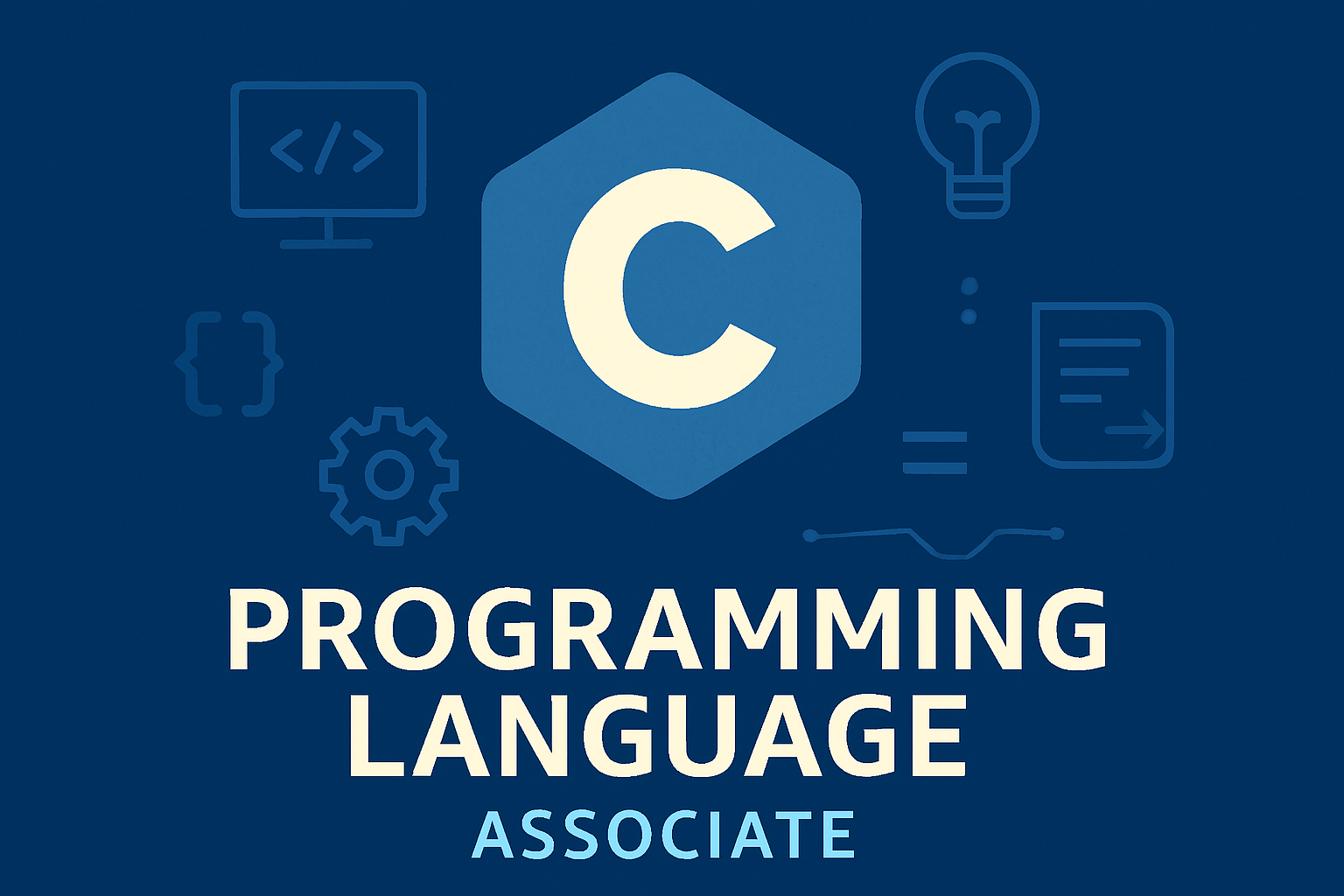C-Language
← Back to Courses
Category: Programming
Duration: 40 Hrs.
Prerequisite : None
This comprehensive course provides a solid foundation in the C programming language, a powerful and efficient language that serves as the bedrock for many modern systems and applications. This course is ideal for beginners with no prior programming experience, as well as those looking to strengthen their understanding of core programming concepts.
Equip learners with a solid understanding of C programming fundamentals, memory management, data structures, and modular design—preparing them for systems-level development, embedded programming, or advanced C++/Java transitions.
Course Modules
Get started with C programming by setting up the development environment and writing your first programs. Understand the structure of a C program and basic syntax.
- Install and configure IDEs (Code::Blocks, GCC, VS Code)
- Write, compile, and run basic C programs
- Understand main function, headers, and basic syntax
Explore C’s primitive data types, variable declarations, and operators. Learn how to perform arithmetic, logical, and bitwise operations.
- Use int, float, char, and double types
- Apply arithmetic, relational, logical, and bitwise operators
- Understand type conversion and precedence
Master decision-making and repetition using if, switch, for, while, and do-while constructs.
- Implement conditional logic with
if-elseandswitch-case - Use loops for iteration and control flow
- Apply
break,continue, and nested loops
Learn to write reusable code using functions. Understand parameter passing, return types, and scope.
- Define and call functions with parameters
- Use recursion and function prototypes
- Manage scope and lifetime of variables
Work with arrays and strings to store and manipulate collections of data.
- Declare and use 1D and 2D arrays
- Perform string operations using
strlen,strcpy,strcmp, etc. - Handle character arrays and string input/output
Unlock the power of pointers for direct memory access and dynamic programming.
- Declare and use pointers
- Understand pointer arithmetic and dereferencing
- Pass pointers to functions and manipulate arrays
Organize complex data using struct and union. Learn how to group related variables and manage memory.
- Define and use structures and nested structs
- Access members using dot and arrow operators
- Understand unions and memory sharing
Read and write data to files using standard I/O functions. Learn to manage file pointers and modes.
- Open, read, write, and close files
- Use
fopen,fscanf,fprintf,fread,fwrite - Handle file modes and error checking
Manage memory manually using malloc, calloc, realloc, and free.
- Allocate memory dynamically
- Prevent memory leaks and dangling pointers
- Use pointers with dynamic arrays and structures
Explore bit-level manipulation for performance and hardware interfacing.
- Use bitwise operators for masking and shifting
- Implement flags and control registers
- Understand binary representation and optimization
Apply all concepts in a real-world project—such as a mini shell, student record system, or file manager. Present and evaluate code quality and design.
- Design and implement a complete C application
- Integrate modular design, file handling, and memory management
- Present and defend code structure and logic